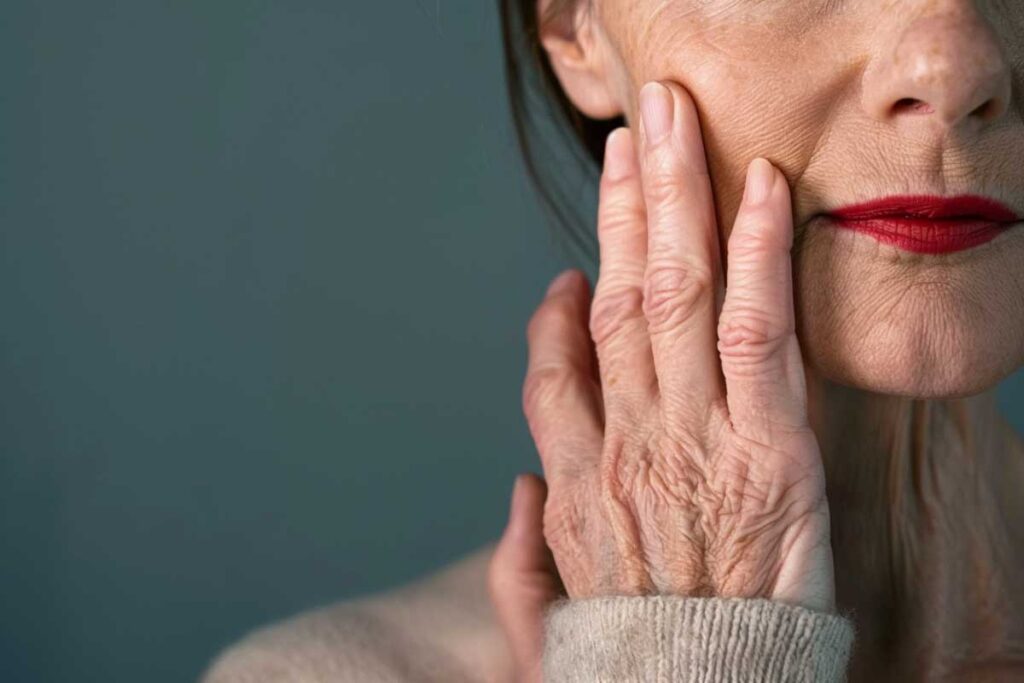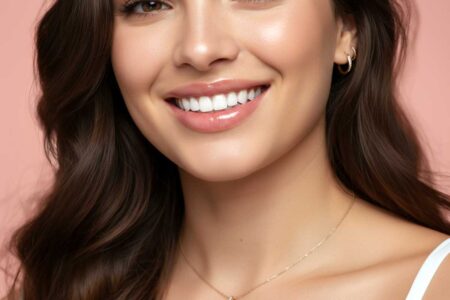Dermatologists let us in on what leads to crepey skin, how to help prevent it, and if OTC products can really erase it.
Crepes are delicious, but crepey skin? Not so much.
Crepey skin resembles crepe paper – thin, wrinkled, and lacking youthful elasticity and thickness.
“Crepey skin is mostly an aesthetic issue, but it can also signal health problems,” said dermatologist Dr. Shoshana Marmon. “Since it’s from sun damage typically, crepey skin may mean higher skin cancer risk. And because it’s thinner and less elastic, it can bruise and tear more easily. That could lead to infection if not treated properly.”
Plenty of creams and treatments claim to improve crepey skin. And for quicker fixes, doctors offer in-office treatments. We asked experts what really works best, and if you can actually prevent crepey skin in the first place.
Why Crepey Skin Develops
Crepey skin mainly comes from sun damage, not just aging – despite the myth, said Dr. Marmon. Lifestyle factors like tanning are big culprits too. Those with lighter skin face higher risk.
The sun dehydrates skin so it can’t hold moisture as well. Collagen and elastin break down, damaging the structure. Any UV exposure contributes, even tanning beds. It’s the radiation that degrades the proteins, Dr. Francis explained.
Genetics matter too. Check your parents – if they have crepey skin, start prevention sooner, advised Dr. Francis.
Many women first see crepey skin around menopause. Estrogen dropping speeds up collagen/elastin loss and skin thinning. “It starts in middle age and worsens with time,” said Dr. Francis.
Where It Shows Up
Crepey skin from sun damage often appears around the eyes, chest, backs of hands, above knees, and inner arms – according to Dr. Sherber.
How to Prevent Crepey Skin
The obvious fix is sunscreen, but Dr. Francis says clothing blocks light even better. “You can’t see through clothes – that’s superior protection,” she explained. “Hats, sunglasses too. They stay put. Sunscreen doesn’t last. I tell people: Make sunscreen your last defense.”
For spots you can’t cover up, apply broad spectrum SPF 30+ water resistant sunscreen, per dermatology guidelines.
Along with sun protection:
- Stay hydrated – skin needs water! Consider supplements like hyaluronic acid.
- Don’t smoke – it accelerates collagen/elastin breakdown.
- Eat collagen-boosting foods like citrus fruits, berries, dark leafy greens. Or take supplements.
- Gentle skin care – avoid irritating ingredients, exfoliants, and harsh scrubs.
- Moisturize daily – creams with antioxidants help protect and nourish skin.
OTC Crepey Skin Treatments
“Eliminating all signs of aging is nearly impossible,” cautions Dr. Marmon. But used regularly, creams with retinoids, AHAs, peptides, hyaluronic acid and antioxidants may help some by boosting collagen. But allow a few months to see if they work.
Dr. Sherber says high price doesn’t mean better results for crepey skin. Consistency matters more. The key is hydration – “Water is number one,” says Dr. Francis. She loves niacinamide (vitamin B3) to improve crepey skin topically or as supplement.
When choosing a moisturizer, Dr. Francis suggests a simple test: “If it doesn’t drip when flipped upside down, it should hydrate well.”
The takeaway: OTC products may provide moderate improvement over time, but manage expectations. And focus on hydrating ingredients.
Doctor-Administered Treatments
The FDA just approved the first injectable skin booster, Skinvive, to improve smoothness. “Unlike fillers that plump up, boosters deeply hydrate,” said Dr. Sherber. “They can greatly help thin, crepey areas.”
Other shots like Radiesse and Sculptra spur collagen growth. Options like radio frequency and fractional lasers also stimulate collagen/elastin production for thicker, more elastic skin. “Both can significantly improve skin quality,” Dr. Sherber said.
For crepey spots like around eyes, she suggests Botox to reduce crinkling.
But Dr. Marmon reminds us: “While we can somewhat improve crepey skin, aging continues. Have realistic expectations about anti-aging products regardless of claims. Aging naturally is better than the alternative.”






